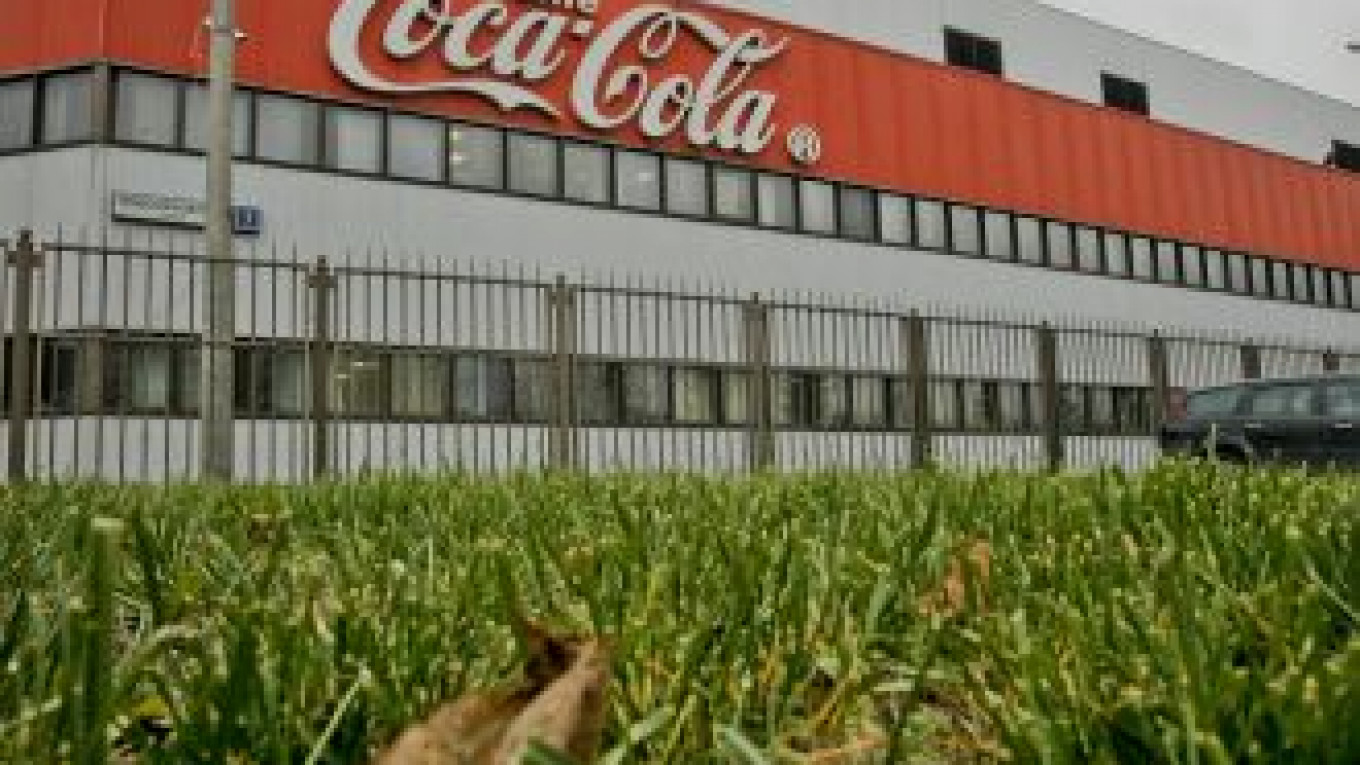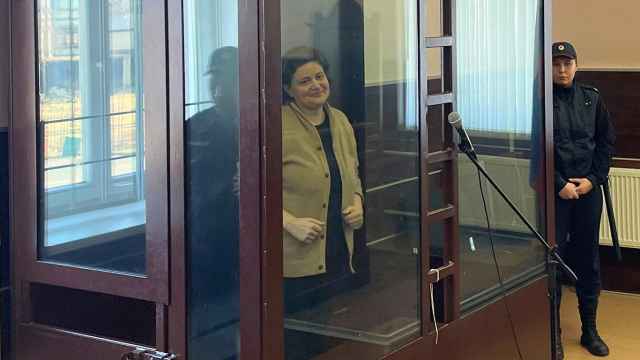The hectic pace of business in Moscow and day-to-day management stress at a Fortune 500 company's foreign subsidiary is pressure enough, but when Coca-Cola announced earlier this week that it plans to pump an additional $3 billion into Russia, local head Zoran Vucinic was unfazed.
To help him prevail, Vucinic says he hires qualified people, with a good education, collaborative skills and ideally a multinational background, then treats them like a team, rather than his staff.
"Human beings motivate themselves," Vucinic said. "My efforts and my team's efforts are to create an environment where people feel great about themselves, an environment where people can grow, speak up, be creative — where people give us their discretionary energy."
The new multibillion-dollar investment plan for the next five years is equal to the sum total of the soft drink giant's investments in Russia over the past 21 years.
Vucinic, who serves as Coca-Cola president of Russia, Ukraine and Belarus, loves his job. He has been with the company since 1988, when he started as marketing manager of the former Yugoslavia, Bulgaria and Romania.
Vucinic was born in Germany to parents from the former Yugoslavia. He has worked all over the region, including in Russia and the former Soviet block countries of Ukraine, Belarus, Romania, Bulgaria, the former Yugoslavia, Austria and Poland.
The difference between working for Coca-Cola in Russia and other countries is the pressure, Vucinic said. The country is an important market for the company, and management is keeping a close watch on Vucinic and his team's performance.
He credits his multinational education and bicultural upbringing with allowing him to easily adapt to working in different countries.
He said he feels right at home in Russia.
Nothing inspires Vucinic more than people that love what they do and are passionate about their jobs. One of his heroes is Steve Jobs. Vucinic sees him as a man obsessed with his product, not just the money. People like that, who bring their whole passion into what they make and leave a legacy, are "something really great, something courageous," Vucinic said.
Coca-Cola is just beginning to build its business in Russia, Vucinic said. Business in other countries where the company has a large market, including Mexico, took 60 to 70 years to build, over many generations of management.
"We are planning 10 years ahead," Vucinic said. "Rome was not built in a day."
Q: Why do you like working in Russia?
A: I like working in Russia because of the tremendous opportunities we have here — you know, when you are in business, you want to be in a place that can develop. It's a little bit boring in a place where the consumption is maybe slow and everything is developed. It's not so much fun. I'm sort of an entrepreneurial type of guy, and what I enjoy about Russia is how creative one can be in developing the business.
Q: What advice do you have for foreign investors or foreign entrepreneurs coming to Russia?
A: I would say Russia is a volatile market, it goes up and down every now and then. It's not for investors who are nervous. It's a good market for long-term investors. This is not the country for the quick ruble — hit and run. You have to have a strong strategy and a product that has a competitive advantage. You have to be in for the long run in Russia.
There are many issues, depending on whether you are small or big. It's different when you represent a huge global company or if you are a German tool manufacturer that has no lobby — it's probably more difficult for those people.
Q: What are some of the challenges of working in Russia?
A: Identifying, keeping and growing a great team. That is a challenge everywhere, but it is disproportionate in Russia. Why? Because the demand is very high for the kind of talent we are looking for.
Young people sometimes hop from job to job — one year here, a year there. What I try to do with my leadership team is actually offer a career and not just a job. And that's quite a tough sell in a red-hot labor market where people say "I can make 20 percent more here," and then you look at their CV and it's a bunch of big companies but the people have not done anything. That's the biggest challenge — keeping and creating a great high-performance team in this environment.
Q: How does Russia differ from Ukraine other Eastern European countries?
A: Russia and Ukraine are very similar. Central European countries have developed a little faster in the last 10 to 15 years. The living standard is higher, business is more mature. Russia and Ukraine are earlier in their evolution, which means our opportunity to grow is higher.
Per capita income is lower in Russia than Hungary, lower than Serbia, lower than in Poland. These countries transformed themselves earlier.
You cannot treat teenagers or any of your consumers with arrogance. People look for high quality and excitement in a brand — we have to be very brilliant. We must never confuse [the fact that] just because our business is underdeveloped, our market is underdeveloped.
Q: How do Russian consumers differ from consumers in other countries?
A: Brands are disproportionately important, you can see that in fashion. People like to wear the label because it gives them a better feeling. You are not carrying a Louis Vuitton bag, you're actually carrying with you that "I'm successful." The Russian consumer puts a high premium on brands. He's not into something that he does not recognize or low quality. Russians love high quality, you can see that in the cars, the holiday destinations, in the clothes — everything that sells on the premium side.
In Russia, branding is disproportionately important.
Q: What are some of the marketing strategies of Coca-Cola in Russia?
A: The promise of the Coca-Cola brand, which is happiness in a bottle — that's global. What makes people cry and laugh is also very similar, pretty much around the world. We fall in love in a certain way, we are sad, proud for similar reasons. However, what is important, you have to tweak it to fit the local culture.
Consumers today feel when somebody is marketing to them — do this, buy this. We really have to touch the soul of the consumer, so that he can relate to what you are doing. That can only happen if you understand the local culture. We have a global strategy, but the tone and manner we try to do locally. You have to figure out what people are passionate about. They don't buy what they need, they buy what they want. When you are part of the culture people feel it, and people relate to it and they become loyal to your brand.
I think [Russian] people are passionate about high-quality friendships and genuine relationships. Football is a big footprint for us, but not football just for the sake of the game. The whole aura around it, playing with your friends, watching a match together, maybe traveling with your favorite team to another country.
A Message from The Moscow Times:
Dear readers,
We are facing unprecedented challenges. Russia's Prosecutor General's Office has designated The Moscow Times as an "undesirable" organization, criminalizing our work and putting our staff at risk of prosecution. This follows our earlier unjust labeling as a "foreign agent."
These actions are direct attempts to silence independent journalism in Russia. The authorities claim our work "discredits the decisions of the Russian leadership." We see things differently: we strive to provide accurate, unbiased reporting on Russia.
We, the journalists of The Moscow Times, refuse to be silenced. But to continue our work, we need your help.
Your support, no matter how small, makes a world of difference. If you can, please support us monthly starting from just $2. It's quick to set up, and every contribution makes a significant impact.
By supporting The Moscow Times, you're defending open, independent journalism in the face of repression. Thank you for standing with us.
Remind me later.






